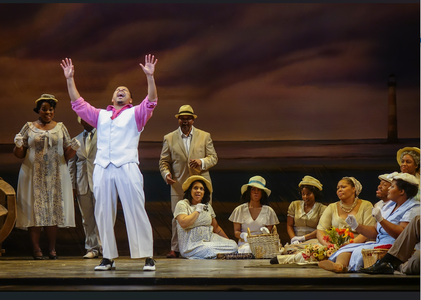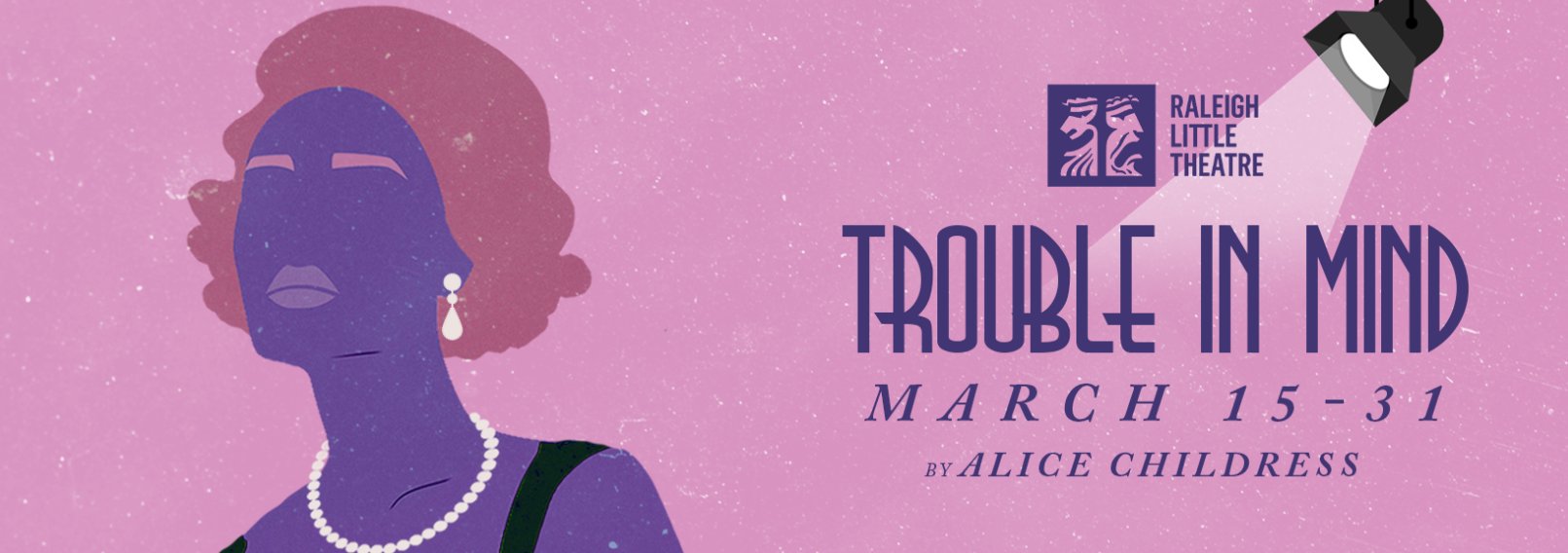Celebrate African American arts and artists in the Triangle!
|
Highlighted Events
Set during rehearsals for a major Broadway production, Trouble in Mind illuminates the inner life of a Black actress struggling with her career. She’s paid her dues throughout the years, playing stereotypical supporting roles in second-rate shows, and is ready for her star turn. Alice Childress’s 1955 play – which finally premiered on Broadway in 2021 – is a funny, moving and heartbreaking look at racism, identity and ego in the high-stakes world of New York theatre. Admission starts at $25.
Raleigh Little Theatre
301 Pogue Street | Raleigh, NC 27607
(919) 821-3111 | www.raleighlittletheatre.org
Raleigh Little Theatre
301 Pogue Street | Raleigh, NC 27607
(919) 821-3111 | www.raleighlittletheatre.org
Would you like to make a difference at art museums in the Triangle? Become a Museum Docent!
Volunteer docents at art museums facilitate conversations and guide informed looking with groups of all ages, backgrounds, and abilities on a daily basis. With recurring training and learning opportunities that explore strategies to keep Museum tours engaging, fun, and relevant for all museum visitors, docents remain the go-to organization for groups visiting museuns,
New docents commit to one year of initial training with Museum staff. During this time they become part of a focused learning community that values collaboration, skill-set expansion, and, of course, art!
Please register and we will provide you with more information!
Blog Highlight

Porgy and Bess Opens Doors for African American Performers and Audiences
(Excerpt from Blog Post)
Porgy and Bess has had a significant impact on audiences. As it toured throughout the U.S., some venues like the National Theatre in Washington, DC were integrated because of protests from cast members. Kenneth Overton, who plays Porgy in NC Opera's upcoming production, said, "For many years, Porgy and Bess was the only opportunity where seeing African Americans in other standard opera roles would also increase visibility on and off stage. People go where they feel welcomed and safe.”
When Maya Angelou first saw Porgy and Bess, she had a powerful response. “I remained in my seat after the curtain fell and allowed people to climbed over my knees to reach the aisle. I was stunned. Porgy and Bess had shown me the greatest array of Negro talent I had ever seen.”’
By Sherri Holmes, Triangle FAAA Founder & Director
Photography by Perry Tannenbaum
(Excerpt from Blog Post)
Porgy and Bess has had a significant impact on audiences. As it toured throughout the U.S., some venues like the National Theatre in Washington, DC were integrated because of protests from cast members. Kenneth Overton, who plays Porgy in NC Opera's upcoming production, said, "For many years, Porgy and Bess was the only opportunity where seeing African Americans in other standard opera roles would also increase visibility on and off stage. People go where they feel welcomed and safe.”
When Maya Angelou first saw Porgy and Bess, she had a powerful response. “I remained in my seat after the curtain fell and allowed people to climbed over my knees to reach the aisle. I was stunned. Porgy and Bess had shown me the greatest array of Negro talent I had ever seen.”’
By Sherri Holmes, Triangle FAAA Founder & Director
Photography by Perry Tannenbaum



